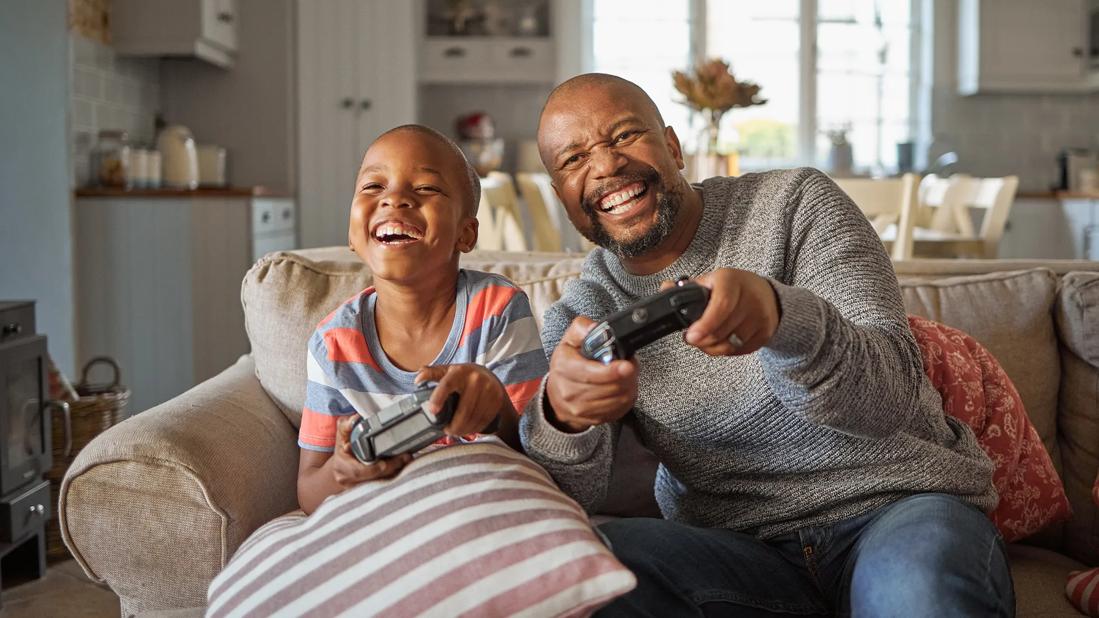How parents and families can make a big difference at home

No parent likes to watch their child struggle in any scenario. For parents of high-functioning children with autism, that struggle often takes place in social situations – in a classroom, on a playground or during a simple conversation.
Advertisement
Cleveland Clinic is a non-profit academic medical center. Advertising on our site helps support our mission. We do not endorse non-Cleveland Clinic products or services. Policy
Thankfully, parents and families can make a big difference at home by helping their children learn social skills. While the work often starts with a therapy session, it does not stop there. With the right understanding and practice, parents can play a major role in their child’s education. In this article, you’ll find five ways to coach parents as their child with autism learns social skills.
Parents should first start with the basics – just as their children will.
“Children don’t learn social skills in a bubble,” says behavioral therapist Colleen Muhvic, MEd, NCSP, BCBA. What happens in a pediatric visit only matters if the parents help once the visit is over,” she emphasizes.
For most of us, social behaviors are second nature, such as greeting people when we enter a room or making eye contact when we speak. Parents may need reminders that for many people with high-functioning autism, these behaviors are not automatic.
Acknowledging that fact and remaining patient as their children learn this behavior is a crucial step in moving forward with a relationship rooted in understanding. Take the extra steps to acknowledge these differences, and wrapping them into their own behavior toward their child can be very helpful.
This is a very important step. Parents should be encouraged to read up on their child’s condition. Additionally, many social skills courses include a component for parents. Pediatricians should stay familiar with resources in these areas in order to be able to recommend programs. The more parents know, the more they’ll be able to reinforce social skills with their children in real time.
Advertisement
The language that parents use with their children is important. Children learn by example. Calling a behavior “wrong” tends to set off many children with high-functioning autism, who only want to be “right”. Instead, parents should talk about expected and unexpected behavior, two terms used in expert Michelle Garcia Winner’s Social Thinking® system. For example, if a parent is trying to get their child to focus on a person when having a conversation rather than pacing around and looking elsewhere, explain that people expect attention when they are talking. In other words, parents should be reminded to give concrete examples of expected behavior that their child can observe and practice.
Social skills aren’t learned in isolation. What happens in a therapy session matters only if parents are consistent once the session is over.
For example, if a teacher or counselor establishes a reward system for expected behavior, parents should carry on with that reward system at home. Learning social skills is really a three-step process of observation, practice and self-monitoring. Parents can help in steps two and three. Parents can be there to support their child as they interact with others, and can encourage their child when they recognize an expected or unexpected behavior in themselves.
While parents may be looking for an easy fix or cure, we know this doesn’t exist. There is no cure for autism. But parents can give their child a great starting point for a rewarding life by helping the child understand social skills. As children progress, parents may need to be coached about using rewards for good behavior less frequently over time. The idea is that as a child gets better and better at a skill, such as conversation, the behavior itself becomes more natural.
Advertisement
“When a child has a successful conversation or makes a new friend, the success is its own king of reward for that child – and for the parent who gets to witness it.”
Advertisement
Advertisement

One pediatric urologist’s quest to improve the status quo

Overcoming barriers to implementing clinical trials

Interim results of RUBY study also indicate improved physical function and quality of life

Innovative hardware and AI algorithms aim to detect cardiovascular decline sooner

The benefits of this emerging surgical technology

Integrated care model reduces length of stay, improves outpatient pain management

A closer look at the impact on procedures and patient outcomes

Experts advise thorough assessment of right ventricle and reinforcement of tricuspid valve